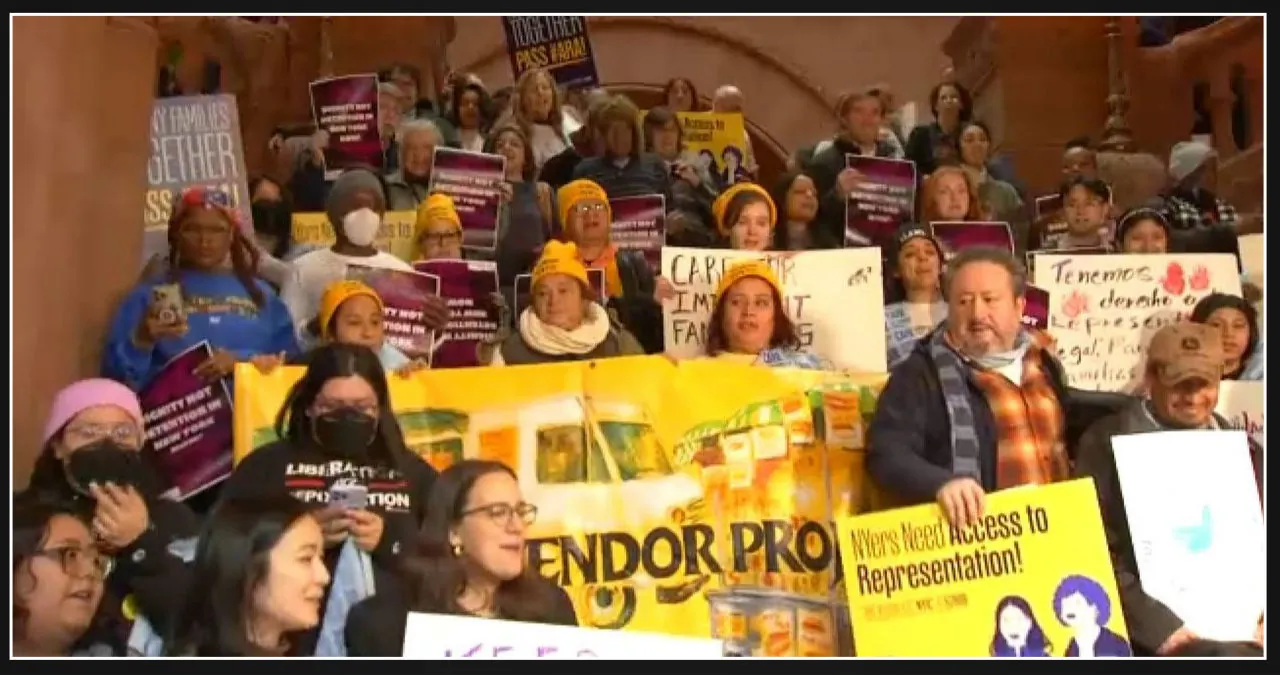A recent court ruling may impede the state’s progress in transitioning the Medicaid home care program, which grants elderly and disabled individuals the ability to hire their own home health aides.
A temporary restraining order has been issued by a state Supreme Court judge in Livingston County on Tuesday. The order prevents a company from sharing personal data of patients who are part of the Consumer Directed Personal Assistance Program (CDPAP) with any third party.
The most recent legal challenge claims that the Health Department’s instruction to collect and share private patient information with a third-party vendor for the purpose of soliciting services or employment goes against federal HIPAA laws, freedom of speech, and other regulations.
Assembly Aging Committee chair Ron Kim expressed his concerns about downsizing the fiscal intermediary program to 100 companies, stating that it was expected to face legal challenges and delays. He further questioned the feasibility of transitioning to a single fiscal intermediary overnight, deeming it highly problematic. Kim emphasized the need to find the right solution and expressed his willingness to collaborate with the governor on this matter.
The state Health Department has issued multiple directives to approximately 700 smaller companies, referred to as fiscal intermediaries (FIs), which have been responsible for handling payroll for CDPAP for a significant period of time. These directives directly impact the 280,000 New Yorkers who depend on the home care program.
The Health Department has directed FIs to submit consumer data pertaining to the program by January 15. This will enable the agency to reach out to program users and their caregivers regarding the upcoming change.
A total of nine lawsuits have been filed, challenging the swift transition that will come into effect on April 1st.
The Health Department’s directive is still in effect following Tuesday’s ruling, but it only applies to a single fiscal intermediary.
A spokesperson from Gov. Kathy Hochul’s office stated on Wednesday that the recent order, which is limited in scope and applies to only one fiscal intermediary, will not have a significant impact on the broader CDPAP transition in the state. The transition is progressing smoothly and is expected to be completed by April 1. The spokesperson further added that the limited order is based on unfounded claims, and the state is confident in its ability to demonstrate this in court. Throughout the transition, personal data will be safeguarded, and collaborative efforts with all stakeholders will continue to ensure the provision of an improved and more robust CDPAP for home care users and all New Yorkers.
The decision establishes a precedent that may lead to other legal challenges regarding the transfer of confidential patient data by companies.
The department has issued a warning to companies that fail to comply with the regulations, stating that sanctions may be imposed.
Several home care providers and health plans voiced their concerns about the directive and the transition in a letter to the state Health Department.
With less than 12 weeks remaining, approximately 280,000 New Yorkers who depend on CDPAP will need to transition to Public Partnerships LLC. The state has contracted with this company to serve as the sole fiscal intermediary for the program, with the aim of reducing instances of fraud and abuse. To ensure a smooth transition and avoid any disruptions in care, the company has recently established a hotline where these consumers can register in their system. This initiative is in preparation for the April 1 deadline.
PPL’s spokesperson reassured that the order would not hinder the company’s progress in the transition.
PPL stated in a statement that they are actively assisting consumers and personal assistants during the transition process. They emphasized the importance of not misinterpreting their communication as a halt to the program transition. PPL urged consumers to continue taking necessary steps to complete their transition without unnecessary delays.
For over 25 years, PPL has been a reliable guardian of consumer data. We have consistently prioritized the protection of personal consumer and personal assistant data, employing stringent security and privacy measures that go beyond state and federal regulations. Our commitment to safeguarding data remains unwavering.
Julie Farrar, a CDPAP recipient who uses a wheelchair, openly shared her concerns with the change during a public confrontation with Hochul last month. Julie Farrar was present at the Capitol on Wednesday.
“I am worried about having my personal HIPAA-protected information out there without my knowledge,” she expressed to Spectrum News 1. “I have no idea who has access to it or what is being done with it. It is a genuine concern that the Department of Health might be sharing this information with PPL without the proper authorization. This is something that greatly concerns me.”
Several legislators have expressed their determination to challenge the existing timeline that was prescribed in the previous budget.
Bipartisan legislation has been proposed to delay the CDPAP transition. Both Democrats and Republicans have expressed their willingness to collaborate with Hochul and legislative leaders in order to find a resolution during this session.
According to Republican Senator Pam Helming from Canandaigua, who is a co-sponsor of the legislation to postpone the transition, it is important to consider what is reasonable for our state. However, she emphasizes that it is not reasonable to move thousands of our most vulnerable citizens to a for-profit company with a questionable reputation by April.
“We must take a moment to reflect,” she emphasized. “…At present, we are endangering the wellbeing of the most susceptible individuals and causing numerous individuals to lose their livelihoods.”
Assembly Speaker Carl Heastie criticized for-profit insurance companies for exploiting the program and expressed his concerns about the excessive number of fiscal intermediaries. However, he did not completely dismiss the possibility of adjusting the timeline during the upcoming budget negotiations.
According to Kim, the Medicaid drain is not caused by the CDPAPs, but rather by the insurance companies who are not effectively managing the funds. Kim believes that it is important to hold these insurance companies accountable for their actions.







Leave a Reply